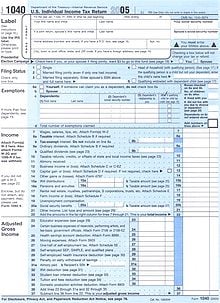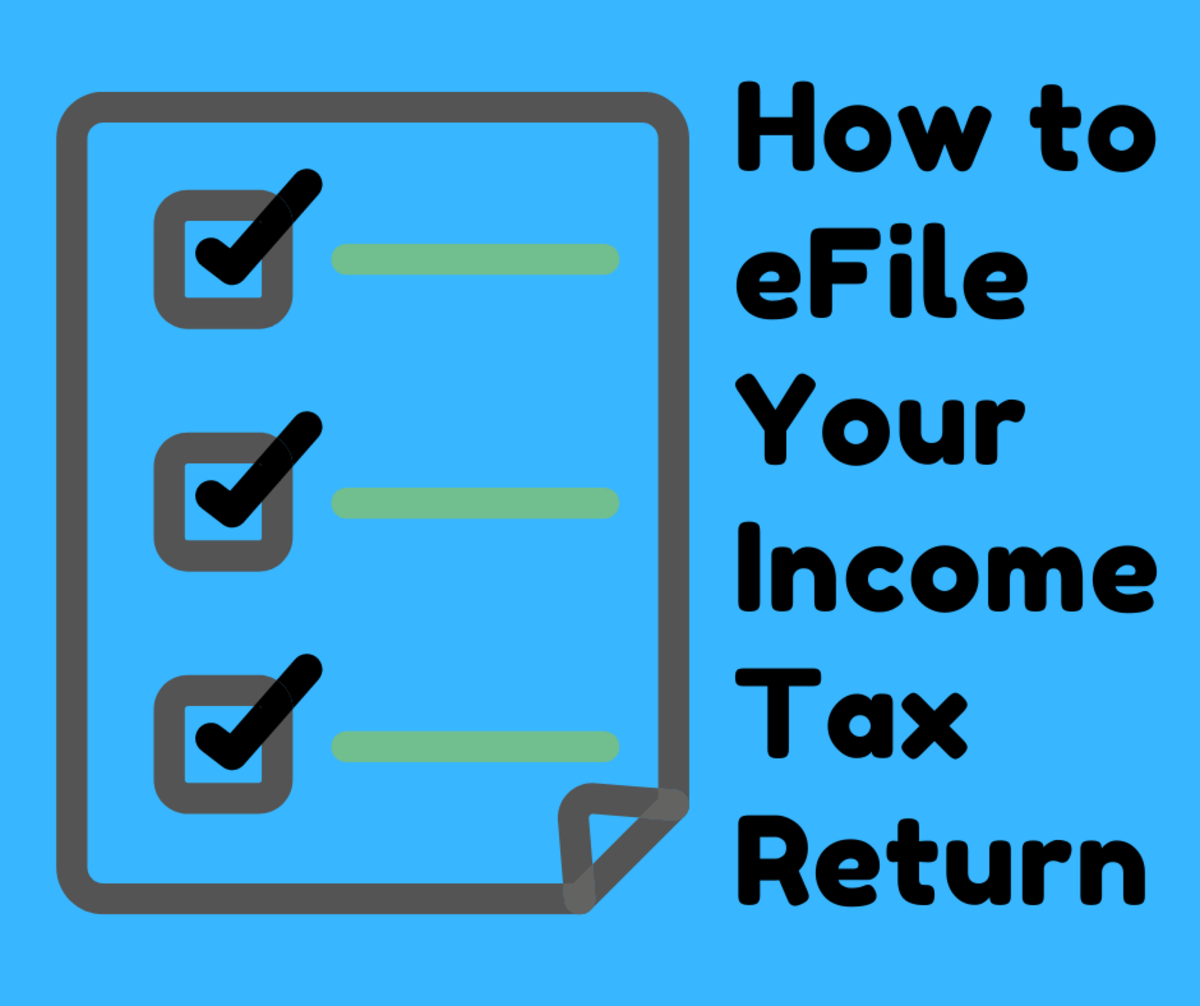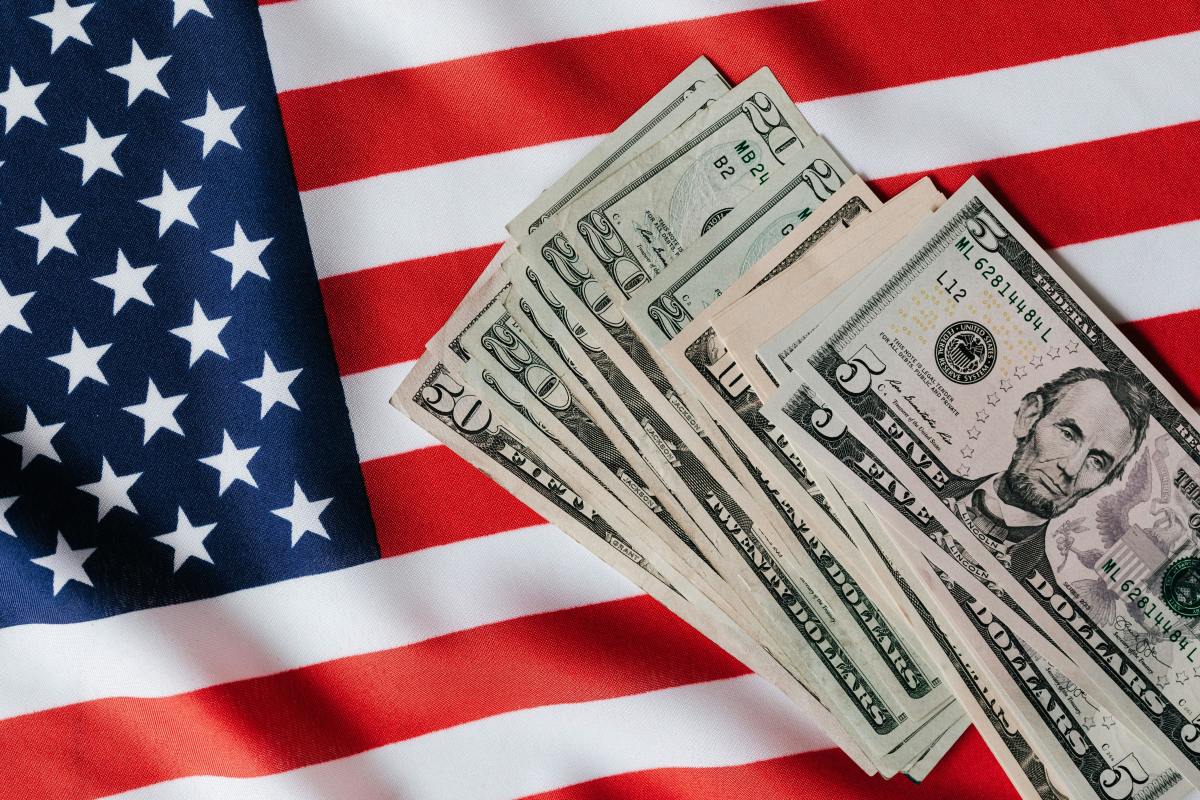Should it be a Sales, Flat, Progressive, or No Tax? Thoughts on Taxation in America.
They Want Our Money

To Tax or Not To Tax, That Really Isn't a Question
LET ME START BY SAYING MY PERSONAL POSITION, which I attribute to, of all people Mike Huckabee for getting me to take a hard look at it, is the National Sales Tax or "Fair" tax, I think it is called. I think that will floor many of my readers, but that's the truth. This won't be an analytical piece either, just some thoughts I have about each form of taxation.
For the federal government not to have the power to tax to provide funding to carry out the business the People through their Representatives in Congress,want it to do, to me anyway, is a really, really dumb idea. There are, however, a large number of people in America who think just that. They think that the income tax, as currently constructed, is unconstitutional; they think only the States should have the power to tax and simply let the federal government request the money it needs to operate from them as they did in the Continental Congress under the Articles of Confederation; some think the government shouldn't be in the business of providing all of these services in the first place and, therefore, don't need all of this money. Fortunately for America, while there are numerically large numbers of people who feel this way, their percentage of the population are minuscule, for the moment.
Having the States fund the federal government was a miserable failure during the Revolution, the fact that the colonies wouldn't do it almost cost us the war. If it hadn't been for the efforts of a very few individual pre-Americans such as Robert Morris to raise the money necessary to support the Continental Army. The proto-States helped very little then and would be worse today. As to the Constitutionality of the income tax, it couldn't be more Constitutional, why, because there was a Constitutional Amendment passed to allow it, duh.
'nough said.
OUR MOST FAVORITE PIECE OF PAPER OF ALL TIME

The Progressive Income Tax
MOST EVERYBODY KNOWS ABOUT THE PROGRESSIVE income tax; every year you get hit with it. The idea is that different levels of income get taxed at different rates, more specifically, the higher the income level, the higher the tax rate for that level; this is what makes it progressive. People say it is fair in the sense that everybody pays the same rate for each income level.
For example, nobody pays tax on the first $10,000, then everybody pays a, say, 5% on the next $30,000. After that, everybody pays 10% on the next $50,000, and so on. In the current debate, we are talking raising the top rate on the wealthy, and I am guessing here, from 32% to 38%, or something like that, on each dollar they earn above $250,000; for each dollar they earn below $250,000, they continue to pay the same rate they always have and that everybody else pays.
The purpose behind a progressive tax is to take into account the fact that people need a certain income level just to survive and that a progressive tax provides equity in society; obviously, Conservatives disagree with this idea, but, on the other hand, 81% of economists do agree. There are many esoteric, my, my, lol, arguments that you do not hear from either side of the debate because they are, frankly, boring and hard to understand. but. nevertheless useful to know here; let present what I think are the most cogent ones, then I will try to explain why.
- We all know certain jobs are worth so much and, in most cases, those working those jobs get paid the wage those jobs are worth. When you get up into the executive level, professional work, or certain entertainers and sports figures, that is not necessarily true, especially when you are talking about the top corporate jobs. It is also not true for low wage jobs. In the first case, because of their ability to control the environment in which their wages are determined and there are no effective ways to limit their actions other than their own moral and ethical code, we have enumerable cases of people earning well over their effective worth. These earnings which exceed the what the job is actually worth are called economic rent which do not represent the rewards for efforts made toward production. The theory is that is this income that can be taxed at a higher rate without effecting wealth production. In the second case, wages can be suppressed below the "normal" wage that would exist because in almost all years, it is a "buyers market" where there is more supply than there is demand and the reality of having to "put food on the table" disrupts the supply-demand balancing mechanism..
- The more wealthy a person is, the more of a position they are in to affect government, societal, and financial policies and procedures to favor increasing their wealth disproportionately to those who earn less. It is this reasoning that persuades me most for taxing the wealthy more than the middle class.
- This next reason is one I had never heard of before, is so interesting, that I will quote it directly from Wikipedia: "A progressive tax reduces income inequality, which has been reported to have a number of societal benefits, such as lower homicide rates at all income levels.[19] A steeper progressive income tax results in an even more equal distribution of income across the board. The difference between the Gini index for an income distribution before taxation and the Gini index after taxation is an indicator for the effects of such taxation. Richard G. Wilkinson argues that in a more unequal society, even middle class people on good incomes are likely to be less healthy, less likely to be involved in community life, more likely to be obese, and more likely to be victims of violence.[20] Amongst the wealthiest quarter of countries, there is no relation between a country's wealth and general population health, but within a country, relative levels can have an effect.[21] This idea was validated by a massive study by French economists, Thomas Piketty in his book, Capital in the 21st Century.
- The last reason I will offer is the one heard most often in today's debate, and probably the weakest and certainly the most rejected by the Conservatives; that the wealthy can simply afford it. They have so much discretionary income that a few percentage point raise in their top marginal rate will have no noticeable effect on employment or wealth production.
As I mentioned earlier, the progressive income tax is perceived to be by most U.S. economists to be the fairest approach to taxation; it is also one of the most expensive to collect. Then there is Congress and their attempts to use the tax code for social engineering; generally laudable intentions such as mortgage interest deductions to spur the housing market but often fraught with long-term unintended consequences.
For reference, I present a table of the top tax rates since the 16th Amendment was passed, what administration was in power and any significant events that may have occurred. As you review it, you might think about how the "tax" part of the Conservative "tax and spend" sound-bite tries to demonize the Democrats.
HISTORIC TOP TAX RATES AND RELATED SIGNIFICANT EVENTS
YEAR
| TOP TAX RATE
| ADMINISTRATION
| EVENTS
|
|---|---|---|---|
1913
| 7%
| Democratic
| |
1916
| 15%
| Democratic
| U.S. entry into WW I
|
1917
| 67%
| Democratic
| |
1918
| 77%
| Democratic
| |
1919
| 73%
| Democratic
| |
1922
| 58%
| Republican
| Effects of WW I have diminished
|
1924
| 46%
| Republican
| |
1925
| 25%
| Republican
| |
1931
| 63%
| Republican
| Great Derpression of 1929
|
1936
| 79%
| Democratic
| |
1941
| 81%
| Democratic
| Beginning of WW II
|
1942
| 88%
| Democratic
| |
1944
| 94%
| Democratic
| |
1946
| 91%
| Democratic
| WW II ends
|
1952
| 92%
| Democratic
| Korean War
|
1954
| 91%
| Republican
| Korean War ends
|
1964
| 77%
| Democratic
| Vietnam War
|
1965
| 70%
| Democratic
| |
1982
| 50%
| Republican
| |
1987
| 38.5%
| Republican
| Income inequality beings to accelerate
|
1988
| 28%
| Republican
| |
1991
| 31%
| Republican
| Record budget deficits
|
1993
| 39.6%
| Democratic
| |
2001
| 39.1%
| Rebuplican
| Begin war in Afghanistan and on terror
|
2002
| 38.6%
| Republican
| |
2003
| 35%
| Republican
| Begin war in Iraq
|
The Flat Tax and National Sales (Fair) Tax Plans
WHILE THE INCOME TAX can be constructed such that it is a progressive tax, the flat tax and the national sales tax (which is a bill in the House called the Fair Tax, which is the name I will use here on out; it is shorter) are, by their nature, regressive; they are regressive because the tax has a more negative effect on people with lower incomes than ones with higher incomes in all cases except one and that is when the value of one dollar of annual income is worth the same to the wage earner as is the value of a million dollars. In all other circumstances a flat tax (I will use this term interchangeably with flat and fair tax) is a regressive tax.
No way! say Conservatives, a flat tax must be a fair tax because it taxes everybody the same doesn't it? Well, yes it does, but that doesn't make it fair, necessarily. How come? It is simple when you think about it, but, you do have to think about it a little bit; you just can't take things for granted; at face value. A flat tax isn't fair to everyone because money, up to a point, is worth more to people at lower income levels than at higher income levels. Let me give you a quick example to demonstrate, but first, I need to define something - non-discretionary income. That term, and its counterpart, discretionary income, have been batted about a lot lately in the debate over tax increases. In my opinion, these arguments as it relates to "fairness of a tax increase" seem to get blown off, but, in reality it is central; here is why.
I define non-discretionary income as that amount of annual income needed for a person or family to lead a normal, financially stress-free lifestyle. That means earning enough income where you can own an average house, an average car, eat relatively well and regulary at home and out, take average vacations, spend an average amount of time at local recreational activities, and so on; I think you see what I mean. If a person or family earns less than this amount to sustain this kind of lifestyle, then they are forced to make choices between what would be expectations of living a normal life. If a person or family earns more than this amount, then they can use this extra income to make improvements to their lifestyle that go beyond the norm. This magic amount of annual income is what I look at as the line between non-discretionary income and discretionary income; the line where below which money is worth more than the excess above this magic line. Here is how this idea comes into play.
Assume our magic line is at $50,000 a year; earn less than that amount and you start to struggle to maintain a "normal" lifestyle; earn more than that and the excess can be used to enjoy oneself even more. Now assume we have two tax payers, one earning $60,000/yr and another earning $1,000,000/yr; also assume the flat tax rate is 20%. That means one tax payer's "fair share" is $12,000 while the other is $200,000 meaning after tax income is $48,000 and $800,000, respectively. OK, enough numbers
Notice what has happened. Taxpayer 1, who once lived comfortably at $60,000 per year, is now beginning to struggle to maintain a "normal" lifestyle at $48,000, one free of financial stress; all a result of this "fair share" flat tax eating into their non-discretionary income. Of course, taxpayer number 2 is still doing pretty well with their $800,000 per year income. Taxpayer number 1 could give up $10,000 of income and still live a comfortable lifestyle, and that is fine, so each dollar of that $10,000 is worth the same to tax payer 1 as each dollar of the $200,000 from tax payer 2. For the next $2,000 however, that is not the case; each dollar is worth much more to tax payer 1 because it is causing them to live more uncomfortably than a "normal" household. It is this interplay between discretionary and non-discretionary income and taxes that makes a flat tax regressive and therefore more unfair to lower income earners over higher income earners.
Now, does this make a flat tax a bad way to tax ourselves, not really; it all depends on how the flat tax is implemented. To be actually fair, it has to be implemented such that it does not eat into whatever is determined to be the level of non-discretionary annual income. After that point, a flat tax is fair and the one biggest advantage of flat tax comes into play; it is really inexpensive to into place and maintain when compared to what we have now; that is a huge incentive to move to a flat tax arrangement and why I am in favor of it.
AUTHOR OF THE "NEGATIVE" INCOME TAX

What is the difference between the Flat Tax and the Fair Tax?
AS I UNDERSTAND the The Fair Tax Act (H.R. 25), it will eliminate the income tax altogether. In its place American's will pay what would be equivalent to a 30% national sales tax at the point of purchase on all goods and services purchased for personal consumption. This is an extremely regressive tax in its raw form. To off-set this, the Act proposes to sent all legal family households a monthly "prebate" check until the accumulated amount reaches the established poverty level estimate of the sales tax that would be paid. For a single person, for example, that would be $209/month.
The basic design of a Flat Tax, as it is most popularly envisioned today, would be to allow an initial deduction for a reasonable cost of living say $30,000 - $40,000, then apply a single tax rate to all income over that, I think current figures in the various proposals out there are somewhere in the 15% - 20% range.
There are other ways of implementing a flat tax as well from economist Milton Friedman's 1962 proposal of a flat tax coupled with an allowance for a cost of living but it would allow for a "negative" income tax. That means if the tax calculation ends up with the government owing money, the government pays it (some called it welfare) To offset that, Friedman proposed eliminating such programs as Food Stamps and Medicaid.
Another was for the employer to collect and pay all taxes, their employees and their own. The idea here is that since the tax liability on the employee is known and invariant, then the employer simply withholds from the employees pay, just like they do today, and pays it to the government, thereby eliminating the need for some 120 million taxpayers from interacting with the IRS; quite a savings that would be.
OK, now I can get the difference between a Fair and Flat tax. The Fair tax taxes Consumption while the Flat tax taxes Production. Actually, the flat tax taxes the income of workers engaged in production but a lot of esoteric theory links that with production. So what?
To me, it boils down to Supply and Demand. When you tax income, you are, in effect, taxing Supply. When you change this tax structure to the degree where it affects income that is not considered "economic rent" (see my discussion in the Progressive Income Tax section), then you are affecting Supply, tending to help it grow or dampening it, regardless of whether the item is elastic or inelastic to Demand. This, in turn, drives prices of goods and services up and down and is the "tail wagging the dog", in my opinion.
When you tax consumption, you are taxing Demand, the dog. If you change tax rates in this case, then prices may or may not change much, depending on whether the product of service is considered "elastic", optional, or "inelastic", a necessity, and to what degree it is one or the other. If the item is "inelastic" then Demand will remain relatively constant, regardless of what the tax is changed to, up or down (and only to a point on the up side), so Supply stays relatively constant. For the "elastic" items, such as luxury yachts of the 1960s, changes in tax will have more of an effect, whether the change is up or down. Demand will change in the opposite direction of the tax changes and so will Supply; prices will vary according to how Supply and Demand interact with each other in the transition. Nevertheless, you still have the "dog wagging the tail" and the results are much more predictable. This is why I favor a Sales Tax approach.
Now, having said that, I do not favor the "Fair Tax Act" because of the "prebate" aspect; it is much too complicated and open to manipulation. Instead, I would prefer that certain commodities and services be exempt from a national sales tax. A short list would be: food items of necessity, most medicines, most medical procedures and services, the first $20,000 of an automobile purchase, the first $150,000 of a home purchase, the first $1,500 of rent, public transportation fares, the sale of a long-term capital, and the like. In my mind, these things cover the necessities of life, except the sale of long-term capital assets which is in there to promote investment; everything else is subject to a sales tax. This places the tax where it ought to be, on consumption; it protects the lower income earners, and it incentivizes savings to boot.








